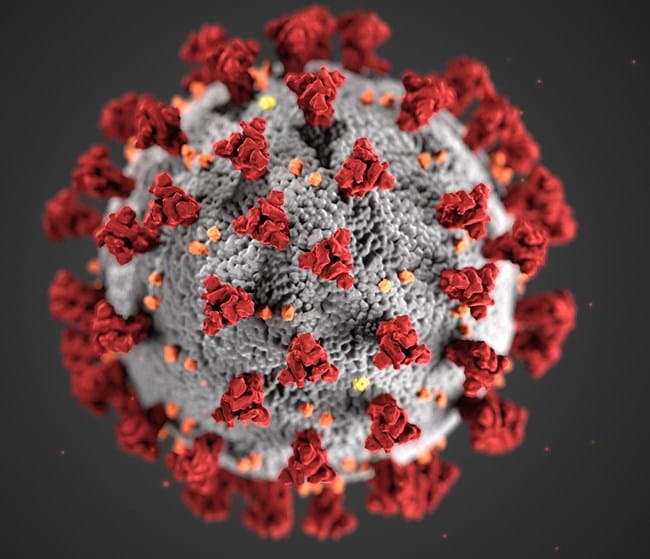
Categories

This resource is provided by WLJ Business Team and registered patent attorney Brandon Middleton.
Click here to download the PDF
The Library of Congress buildings, which includes the Copyright Office, are closed to the public until further notice, as a precautionary measure to prevent the spread of COVID-19. As a result, the Copyright Office has reduced the number of staff working onsite and has established several interim rules to mitigate the effect of such closure on the examination of copyright application.
Changes to Timing Provisions
The CARES Act added section 710 to the Copyright Act, authorizing the Register of Copyrights to “toll, waive, adjust, or modify any timing provision . . . or procedural provision” of the Copyright Act if it is determined that a national emergency declared by the President “generally disrupts or suspends the ordinary functioning of the copyright system . . . or any component thereof.” On March 31, 2020, Acting Register Maria Strong used this authority to put into effect certain emergency modifications to timing provisions of the Copyright Act, which shall remain in effect for sixty days unless the Acting Register issues an announcement rescinding or extending the modifications.
Under section 412 of the Copyright Act, a copyright owner generally is eligible to be awarded statutory damages in an infringement action only if the work is registered prior to the infringement or within three months of the work’s first publication. The effective date of registration is the date when the Copyright Office receives the application, deposit, and fee. To mitigate the effect of disruption due to the COVID-19 pandemic, the Acting Register is temporarily adjusting the application of time provisions of section 41 following a tiered approach:
- There is no change or extension for timing provisions for copyright applications that can be submitted entirely in electronic form. This would apply to all applications for which electronic deposits may be submitted.
- If an applicant can submit an application electronically but is unable to submit a required physical deposit, the applicant should upload, together with the application, a declaration or similar statement certifying, under penalty of perjury, that the applicant is unable to submit the physical deposit and would have done so but for the national emergency, and setting forth satisfactory evidence in support. If this requirement is met, and the three-month window for registration after the date of first publication was open as of March 13, 2020, the window will be extended such that the applicant will be eligible for the remedies under section 412, provided that the applicant submits the required deposit within thirty days after the date the disruption has ended, as stated in a public announcement by the Acting Register.
- If an applicant is unable to submit an application electronically or physically during the disruption, the applicant may submit an application after the Acting Register has announced the end of the disruption, and include a declaration or similar statement certifying, under penalty of perjury, that the applicant was unable to submit an application electronically or physically and would have done so but for the national emergency, and providing satisfactory evidence in support. If this requirement is met, the three-month window under section 412 will be tolled between March 13, 2020, and the date that the disruption has ended.
Under sections 203 and 304(c) of the Copyright Act, individual authors may reclaim copyright interests previously transferred to another party in specified circumstances. In general, an author may terminate a transfer within a five-year window, provided the author serves notice on the transferee between two and ten years before the chosen termination date. After service, the notice must be recorded with the Copyright Office. The Acting Register is also extended timing requirements for serving and recording such notices of termination.
- Where the termination window expires on or after March 13, 2022, and within two years after the date the disruption ends, the five-year window for service of a notice of termination will be extended if the author services a notice of termination within 30 days of the disruption ending and the notice is accompanied by a declaration that the delay in service is from the national emergency and provides sufficient evidence.
- Where the recording window expires, the requirement that the notice be recorded before the date of termination will be waived if (a) the author has already served the notice, (b) the termination date listed on the notice is on or after March 14, 2020, and on or before the date the disruption ends, (c) the author records the notice within thirty days after the date the disruption has ended, and (d) the recordation includes a declaration the author’s delay in recording was caused by the national emergency and includes satisfactory evidence to support that statement.
Satisfactory evidence to support the statement in either case would include, for example, a statement that the applicant was prevented from accessing or mailing the required physical materials (by way of a stay-at-home order, for example).
Relief for Claims with Physical Deposits
On April 2, 2020, the Copyright Office provided additional relief for the examination of electronic applications accompanied by physical deposits.
For applicants filed before April 2, 2020, the applicant may be provided the option of providing an additional electronic copy of the work so that the Copyright Office can examine the claim remotely. This option is only available if the Copyright Office contacts the applicant and offers the option.
- If the applicant agrees to use this option, an electronic deposit copy must be submitted along with a declaration, under penalty of perjury, stating that the copy is identical to the previously submitted physical copy. A declaration form will be provided to the applicant by the Copyright Office.
- In the event this option is not available or agreed upon, the application will be examined in-person once the Copyright Office returns to normal operations.
For applications filed on or after April 2, 2020 that require the submission of “best edition” physical copies, the applicant has the option of both mailing the required physical copies and uploading an electronic copy (along with the appropriate declaration form declaring, under penalty of perjury, that the electronic copy is identical to the physical copies mailed). This will allow the Copyright Office to examine the application remotely. If this option is not available or not agreed upon, the applicant should mail the physical deposits and the Copyright Office will examine the application once normal operations resume.
Practical Note: Because the date of registration is generally the date the application is received at the Copyright Office, in the event an application requires examination in-person once the Copyright Office resumes normal operations, the delayed examination should not affect the date of registration.
As COVID-19 continues to spread, affecting the health of our citizens and businesses, our intellectual property attorneys continue to work diligently to protect the rights of businesses and entrepreneurs. If you’ve been affected by the COVID-19 outbreak and want to know if you’re eligible for an extension under these extended timing provisions, contact K. Brandon Middleton, J. Charles Dougherty, Blake Glasgow or Meredith Lowry. We hope for your safety and health in this uncertain time.
This memorandum is provided by Wright, Lindsey & Jennings, LLP for educational and informational purposes only and is not intended and should not be construed as legal advice.










































































